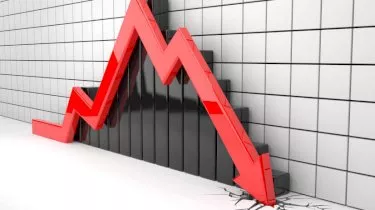Invest
How does inflation affect investments?
Inflation affects the total value of investments, but does it really influence portfolios? Nest Egg provides a quick explanation on inflation.
How does inflation affect investments?
Inflation affects the total value of investments, but does it really influence portfolios? Nest Egg provides a quick explanation on inflation.

Inflation is an economic reality that investors need to understand and consider when creating their portfolio, but risk-averse investors overlook it in favour of safety.
However, not even ‘safe investments’ are truly protected from inflation, because it affects all aspects of the economy.
Learn how inflation impacts investments and why investors should take it into consideration when calculating projected returns.
What is inflation?
As economies flourish and sustain their growth, the prices of commodities rise along with it. This continuous increase in prices year after year erodes the value of money and decreases its purchasing power. This trend is called inflation.

Looking from another perspective, inflation can also be defined as the rising price of commodities and services over time.
For instance, if the inflation rate is at a constant eight per cent annually, then a $2 glass of lemonade would cost $2.16 after a year, $2.33 the next, and will reach $4 after 10 years—double its original price. In 30 years’ time, it would already cost $18.63, but the product would still have the same formulation and amount.
How are inflation and interest rates related?
Inflation and interest rates have an inversely proportional relationship—when one goes up, the other goes down. Here’s why.
- Interest rates up, inflation down
When interest rates rise, people tend to be more reserved with their spending, especially if the money they use will come from loans and other debt products. Higher interest rates mean they will have to pay more for a product that previously costs lesser.
Since people expect to pay higher, they tend to save more and spend less, leading to a lower demand for commodities. As the law of supply and demand illustrates, when there is more supply than demand, prices go down. This move to compensate leads the economy to either retain its position or deflate a little.
For instance, when a credit card with an accompanying 7.5 per cent interest rate hikes up the rate to 10 per cent, the $7.50 interest for every $100 spent prior to the hike becomes $10.
- Interest rates down, inflation up
On the other hand, people get encouraged to spend more when interest rates go down because they would pay less overall.
However, an increase in spending translates to increased demand or less supply—a situation that would increase the price of goods and services and lead to inflation. When inflation happens, the purchasing power decreases, which also means that the total earnings from investments could decrease.
Reversing the example above, a $10 interest payment for every $100 spending would decrease to $7.50.
Effects of inflation on investments
When selecting assets to add to their portfolio, because their choices can make a difference on their actual investment earnings. Consider how inflation affects the investments below.
- Cash investments
Some people prefer to keep their cash in a typical savings account to ensure liquidity and avoid market volatility, but inflation can deal huge damage on cash assets. This is because the terms and interest rates of typical savings and checking accounts are not designed to keep up with rising inflation rates.
They could, instead, choose cash-based products—such as term deposits—that offer some protection in the form of variable interest rates that are usually hedged against inflation.
For instance, in the eight per cent inflation rate scenario earlier, a high-interest online savings account with a three per cent interest rate per annum still loses out by five percent.
- Debt securities (bonds, etc.)
Bonds offer higher interest rates than savings accounts and term deposits, a better option for risk-averse investors.
It’s important to note that interest rates may be higher and more attractive in some bonds, but if inflation occurs, the purchasing power of their earnings decreases.
There are different types of bonds available in the market. Some bonds, such as floating rate notes, are even designed to protect against the effects of inflation.
For instance, a $100 5-year bond with a 10 per cent interest rate may return $150 upon maturity, but the actual investment earnings depend on the rate of inflation. Assuming a constant five per cent inflation rate per annum, the purchasing power of $100 at the start of the term translates to $121.55 after five years. In a tax-exempt environment, the actual gain is only $28.45, and it decreases further if the earnings are taxable at the individual’s marginal tax rate.
- Shares portfolio
Investing in shares can be risky because of market volatility, but it remains as one of the more effective ways to beat inflation.
Stocks depend on the performance of its underlying company more than market sentiment, which means a business that thrives may continue to create income for investors. This income may come in the form of share price increases or dividend payouts that can offset inflation.
However, the share market can still be affected negatively by unexpected inflation
- Property
Property may be the most illiquid investment, but it’s also the asset that benefits the most from inflation.
As the prices of commodities increase due to inflation, so do real estate prices. This may also mean that deflation could cause a crash in house prices. However,this relationship does not apply to all properties.
Since most properties are purchased via loans, the movement of interest rates can affect demand for property. Likewise, the movement of inflation rates could spell the difference between profit and loss for sellers.
How to mitigate the effects of inflation
There is no simple way to counter the effects of inflation. The best way is to design a diversified portfolio that ensures most, if not all, assets are protected from the movement of inflation.
It’s best for investors to discuss their portfolios with an expert to examine its vulnerability to inflation, if any.
This information has been sourced from Nest Egg and PIMCO.
About the author

About the author


Property
Multigenerational living is moving mainstream: how agents, developers and lenders can monetise the shift
Australia’s quiet housing revolution is no longer a niche lifestyle choice; it’s a structural shift in demand that will reward property businesses prepared to redesign product, pricing and ...Read more

Property
Prestige property, precision choice: a case study in selecting the right agent when millions are at stake
In Australia’s top-tier housing market, the wrong agent choice can quietly erase six figures from a sale. Privacy protocols, discreet buyer networks and data-savvy marketing have become the new ...Read more

Property
From ‘ugly’ to alpha: Turning outdated Australian homes into high‑yield assets
In a tight listings market, outdated properties aren’t dead weight—they’re mispriced optionality. Agencies and vendors that industrialise light‑touch refurbishment, behavioural marketing and ...Read more

Property
The 2026 Investor Playbook: Rental Tailwinds, City Divergence and the Tech-Led Operations Advantage
Rental income looks set to do the heavy lifting for investors in 2026, but not every capital city will move in lockstep. Industry veteran John McGrath tips a stronger rental year and a Melbourne ...Read more

Property
Prestige property, precision choice: Data, discretion and regulation now decide million‑dollar outcomes
In Australia’s prestige housing market, the selling agent is no longer a mere intermediary but a strategic supplier whose choices can shift outcomes by seven figures. The differentiators are no longer ...Read more

Property
The new battleground in housing: how first-home buyer policy is reshaping Australia’s entry-level market
Government-backed guarantees and stamp duty concessions have pushed fresh demand into the bottom of Australia’s price ladder, lifting values and compressing selling times in entry-level segmentsRead more

Property
Property 2026: Why measured moves will beat the market
In 2026, Australian property success will be won by investors who privilege resilience over velocity. The market is fragmenting by suburb and asset type, financing conditions remain tight, and ...Read more

Property
Entry-level property is winning: How first home buyer programs are reshaping demand, pricing power and strategy
Lower-priced homes are appreciating faster as government support channels demand into the entry tier. For developers, lenders and marketers, this is not a blip—it’s a structural reweighting of demand ...Read more

Property
Multigenerational living is moving mainstream: how agents, developers and lenders can monetise the shift
Australia’s quiet housing revolution is no longer a niche lifestyle choice; it’s a structural shift in demand that will reward property businesses prepared to redesign product, pricing and ...Read more

Property
Prestige property, precision choice: a case study in selecting the right agent when millions are at stake
In Australia’s top-tier housing market, the wrong agent choice can quietly erase six figures from a sale. Privacy protocols, discreet buyer networks and data-savvy marketing have become the new ...Read more

Property
From ‘ugly’ to alpha: Turning outdated Australian homes into high‑yield assets
In a tight listings market, outdated properties aren’t dead weight—they’re mispriced optionality. Agencies and vendors that industrialise light‑touch refurbishment, behavioural marketing and ...Read more

Property
The 2026 Investor Playbook: Rental Tailwinds, City Divergence and the Tech-Led Operations Advantage
Rental income looks set to do the heavy lifting for investors in 2026, but not every capital city will move in lockstep. Industry veteran John McGrath tips a stronger rental year and a Melbourne ...Read more

Property
Prestige property, precision choice: Data, discretion and regulation now decide million‑dollar outcomes
In Australia’s prestige housing market, the selling agent is no longer a mere intermediary but a strategic supplier whose choices can shift outcomes by seven figures. The differentiators are no longer ...Read more

Property
The new battleground in housing: how first-home buyer policy is reshaping Australia’s entry-level market
Government-backed guarantees and stamp duty concessions have pushed fresh demand into the bottom of Australia’s price ladder, lifting values and compressing selling times in entry-level segmentsRead more

Property
Property 2026: Why measured moves will beat the market
In 2026, Australian property success will be won by investors who privilege resilience over velocity. The market is fragmenting by suburb and asset type, financing conditions remain tight, and ...Read more

Property
Entry-level property is winning: How first home buyer programs are reshaping demand, pricing power and strategy
Lower-priced homes are appreciating faster as government support channels demand into the entry tier. For developers, lenders and marketers, this is not a blip—it’s a structural reweighting of demand ...Read more








